Description
ABSTRACT
Rethinking the Duties of a Receiver and Powers of Directors of Companies in Receivership under Nigerian Law
Kunle Aina*
ABSTRACT
Receivership is an enforcement procedure devised by Law to ensure that a charged security is realized by debenture holders. The advantages of appointing a receiver are quite enormous and have come to be preferred to other forms of enforcement procedures available to debenture holders. The appointment, qualification and disqualification of receivers in Nigeria as provided by the Companies and Allied Matters Act, CAP C20 Laws of the Federation of Nigeria, 2004 (CAMA) is not only inadequate but unfortunately constitutes an avenue for encouraging incompetent receivership practice. This paper critically examines the role and duties of the receiver in Nigerian law and points out the discrepancies, total lack of regulation and great gaps in the law which has led to great injustice to companies. The paper argues that directors of companies under receivership are not thereby paralysed and they should exercise their powers to monitor the activities of the receiver. There is need to amend the law to streamline the duties of the receiver, provide for regulation of receivership and protection of the company and debenture holders.
INTRODUCTION
Receivership is an ancient equitable remedy available to both secured and unsecured creditors. 1 However, in the case of companies, it is preserved for secured creditors only. A receiver may either be appointed pursuant to a clause in the debenture document or by the court usually on the application of the secured creditors. Whether appointed by the court or pursuant to the charge instrument, he is only known to be the rightful person upon proper appointment to take over the management and control of the company in order to realize the assets of the company for the principal purpose of repaying the secured creditors and ultimately return the company to the Directors if the company is still in a good financial standing to continue its business2 or to the liquidator. A receiver is the person appointed only to realize the loan given by the debenture holder, while a Receiver and Manager is the person who may not only realize the loan but also has the power to manage the company business with the same ultimate aim.3 Generally, debenture is regarded as the document consisting of the debt owed by the company and secured by a charge on the company’s assets. The debenture will also specify the steps that may be taken by the debenture holder whenever there is a default by the company. Where the debenture is charged by a fixed charge, the debenture holder simply pursuant to the debenture appoints a receiver or receiver and manager, and where it is charged by a floating charge, the charge will crystallize and the debenture holder will appoint a receiver or receiver and manager as the case may be. Receivership is therefore an enforcement procedure devised by Law to ensure that the security is realized by the debenture holders. The advantages of appointing a receiver are quite enormous and have come to be preferred to other forms of enforcement procedures available to debenture holders.4
*LL.B, BL, LL.M, Ph.D, ACTI. Senior Lecturer, Faculty of Law, University of Ibadan

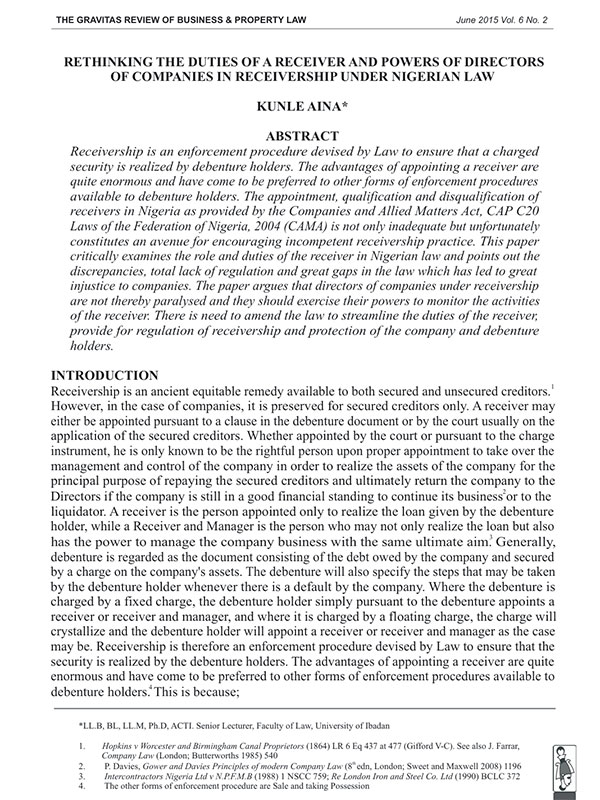
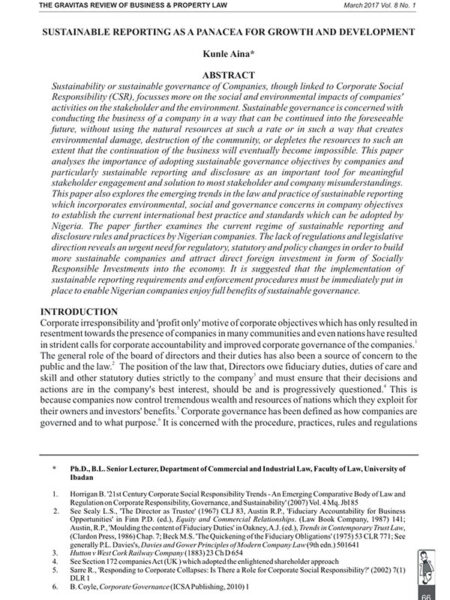
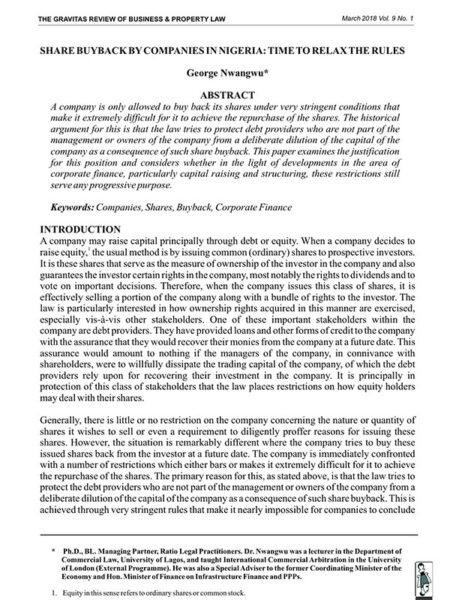
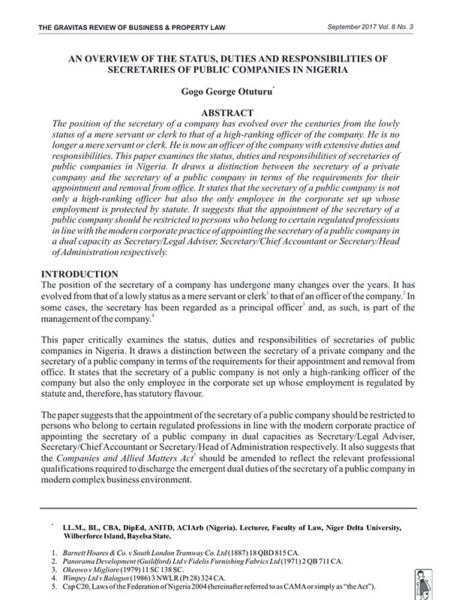
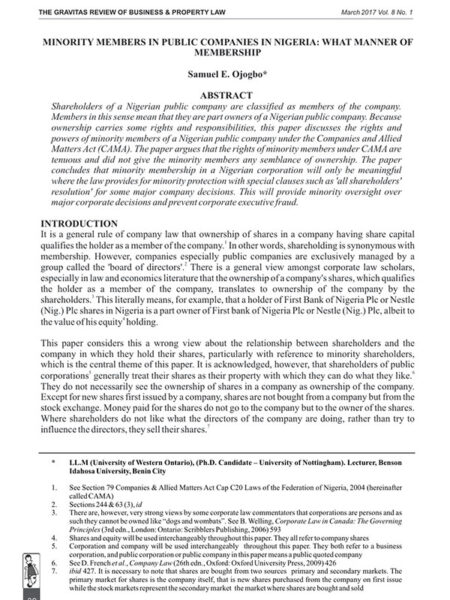


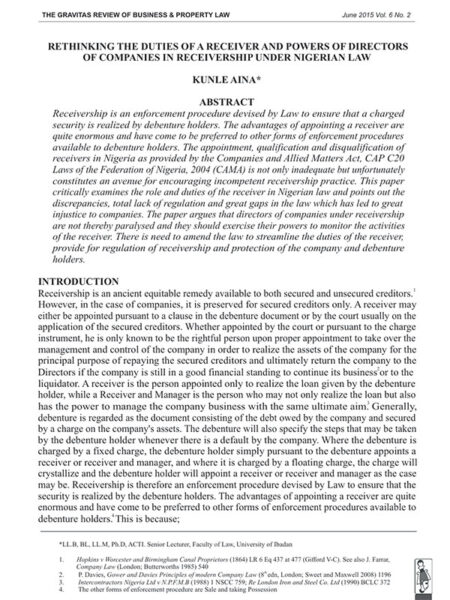
Reviews
There are no reviews yet.